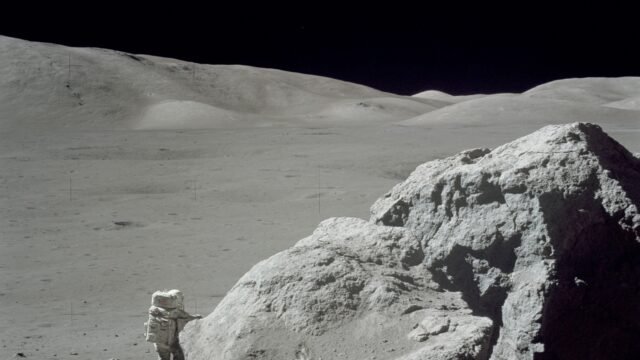Argentina became the 28th nation to sign the NASA Artemis Accords on Thursday, joining other governments committed to furthering multilateral collaboration in space exploration.
Minister of Science, Technology, and Innovation Daniel Filmus signed the Artemis Accords on behalf of the Argentine Republic during a ceremony presided over by President Alberto Fernández at the Casa Rosada.
The event occurred during Bill Nelson’s NASA administrator visit to Argentina at the time of the ceremony.
“Along with our fellow Artemis Accords signatories, the United States and Argentina are setting a standard for 21st-century exploration and use of space,” Nelson said in a statement about the signing.
Other dignitaries who gave remarks during the ceremony were President Fernández, U.S. Ambassador Marc R. Stanley, and Foreign Minister Cafiero.
Argentina joined Brazil, Colombia, Ecuador, and Mexico as the fifth country in Latin America to sign the Accords as the 28th nation overall.[1]
Argentina is the fifth nation to sign the Accords in the last three months after the Czech Republic, Spain, Ecuador, and India.
“The unprecedented momentum that the Accords are enjoying is a tribute to the global desire for norms of behavior in space. This is vital not only for government activities but for the private sector as well, since investors and operators benefit greatly from an environment in space that is peaceful, predictable, and prosperous,” said Mike Gold, chief growth officer at Redwire and a former NASA official who spearheaded the development of the Artemis Accords in 2020.
What is the Artemis Accords?
The Artemis Accords are a set of guidelines for space exploration cooperation that were formed by NASA in 2020 in collaboration with the US Department of State and seven other founding member states, including those taking part in the Artemis program.
The 1967 Outer Space Treaty’s essential commitments are reinforced and put into practice by the Artemis Accords.
Additionally, they reaffirm the US’s commitment to the Rescue and Return Agreement and the Registration Convention, as well as the standards of responsible conduct that NASA and its partners have endorsed, such as the open sharing of scientific data.
Signing the Artemis Accords, though, does not mean a country will be participating in the NASA-led Artemis lunar exploration campaign.
“The Accords are how we’re going to operate, and it’s really about how we’re going to conduct ourselves when we do the Artemis missions,” said Jim Free, NASA associate administrator for exploration systems development, during a panel discussion at the American Astronautical Society’s Glenn Memorial Symposium July 19.
Space cooperation between the United States and Argentina has a long history, spanning activities like geodetic research in space, satellite-based Earth observations, and bilateral trade and investment in products and services related to space.
Thanks to the Artemis Accords, our countries have a shared concept and strategy for the safe and responsible exploration and use of space.
Argentina’s space development strategy is pivotal, with Alberto Fernández emphasizing the nation’s belief in science and technology, solidifying their commitment to advancing space exploration as a crucial state policy.
NASA hopes that more international partners will sign the Artemis Accords in the coming months and years, aiming for a safe, peaceful, and prosperous future in space.
This collaboration will enhance energy and capabilities, benefiting the entire world in exploration and discovery.
References
- NASA, ‘NASA Welcomes Argentina as Newest Artemis Accords Signatory,’ 27 July 2023, https://www.nasa.gov/press-release/nasa-welcomes-argentina-as-newest-artemis-accords-signatory[↩]





